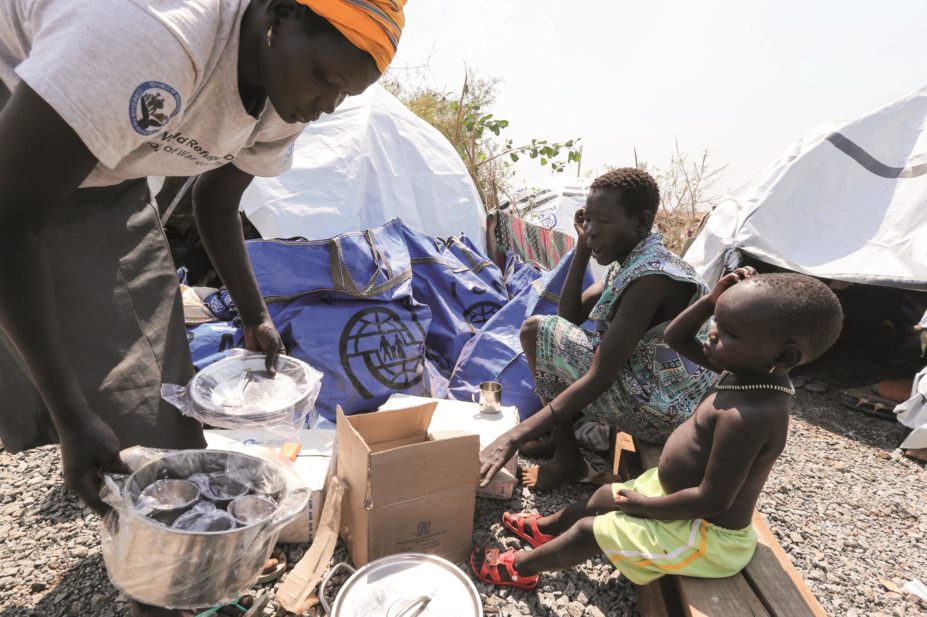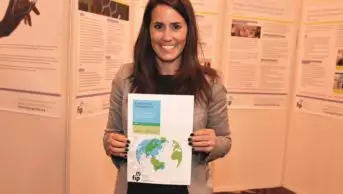
UN Photo / Isaac Billy
Many non-governmental organisations (NGOs) that supply humanitarian aid do not fully appreciate what a pharmacist can do, said Trudi Hilton, chief pharmacist of International Health Partners (IHP), speaking after the International Pharmaceutical Federation congress session on ‘Pharmacists in humanitarian work’ on 3 September 2014 in Bangkok.
Most NGOs do not employ a pharmacist, despite sending millions of pounds worth of medicines to their projects worldwide each year. Instead, logisticians and medical logisticians manage the pharmaceutical supply chain. This can lead to problems, if local treatment guidelines that dictate what is prescribed locally — and thus what should be procured — are not taken into account.
IHP is a charity approved by the UK Department for International Development to facilitate the donation of medicines to disaster-hit regions. “We are determined to try and increase awareness of the value pharmacists add”, Hilton said. These efforts are bearing fruit with Save The Children currently advertising for a bank of pharmacists to work in an Ebola treatment centre in Sierra Leone.
The question of medicine donations provoked much debate at the session. Donations allow medicines of known quality to be shipped to a disaster area quickly. However, this has to be done appropriately, taking into account the local situation. It is vital that countries are consulted about their pharmaceutical needs, so only appropriate drugs that feature in local formularies are provided, said Hilton.
This view was endorsed by several delegates attending the session, who gave examples of their experiences from the viewpoint of recipient countries. Medicines of differing strengths to those used locally may be used by NGOs on a humanitarian mission. However, this can create a problem when the NGO leaves and the patient can no longer find a supply of that medicine. Sometimes there can be a delay in shipping donated drugs so if they are not sufficiently long-dated, they are close to expiry or are out of date on arrival. This then creates a burden for the recipient country, which may not have the facilities to safely and appropriately destroy expired medicines.
The World Health Organization has published a ‘Guideline for the donation of medicines’ to emphasise good practice in this area. Some NGOs prefer to use local supply chains to procure medicines, to stimulate the local market and logistics system, enhancing long-term sustainability, but they run the risk of inadvertently purchasing counterfeit or substandard medicines. Therefore, many organisations insist upon a guarantee of quality before doing this, which can be difficult to obtain.
Hilton estimated there may only be a small number of pharmacists worldwide who have been deployed intentionally or unintentionally as part of a disaster response. There is a crucial need to identify pharmacists with that experience, capture their expertise and formulate best practice, she said. This can then be used to create training programmes for pharmacists to go into humanitarian situations or for those who live in areas which are at high risk of a natural disaster, such as an earthquake, tsunami, hurricane, volcanic eruption, flood or epidemic. It can also be used to assemble an accredited list of pharmacists with experience in the area of humanitarian aid as a resource for NGOs.
Hilton hopes to create a catalogue of formularies and pharmacy contacts in countries identified as high risk, so that in a disaster all potential medicine donors can liaise with local services to ensure that medicines are appropriate and are handled and stored safely.
Pharmacists who have been involved with or are interested in humanitarian work can sign up to the Humanitarian Aid and Response Network (HARN) on the Royal Pharmaceutical Society website: http://www.rpharms.com/sector-groups/humanitarian-aid-and-response-network.asp. The network is a joint venture between IHP and the RPS and aims to raise awareness of the role that pharmacists can play in humanitarian aid and development, facilitate training in essential skills, and link pharmacists to charities who require pharmaceutical input.
